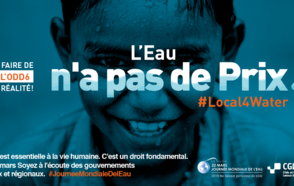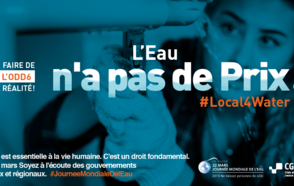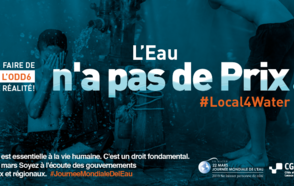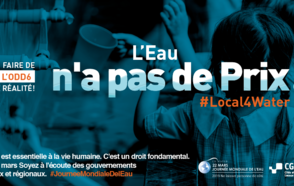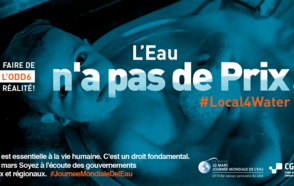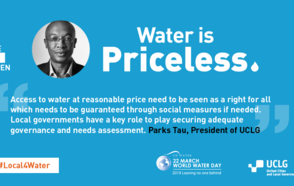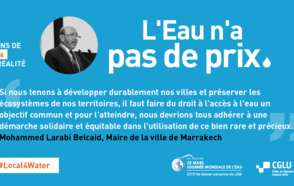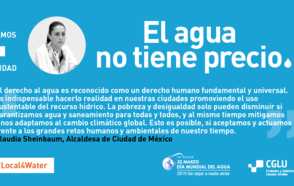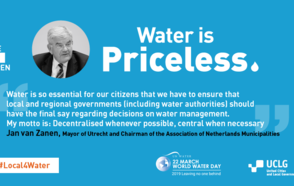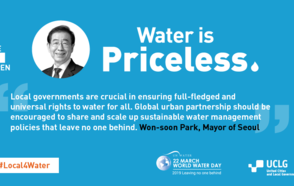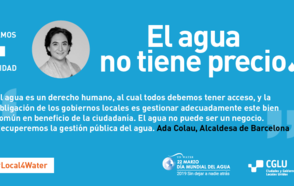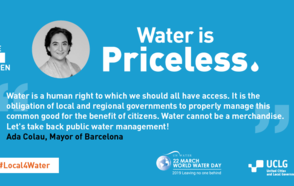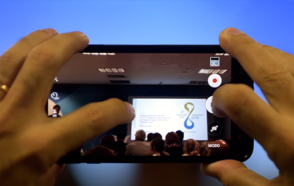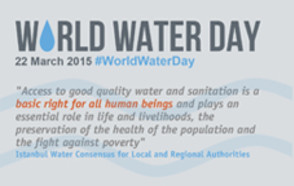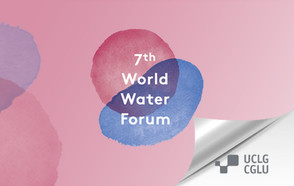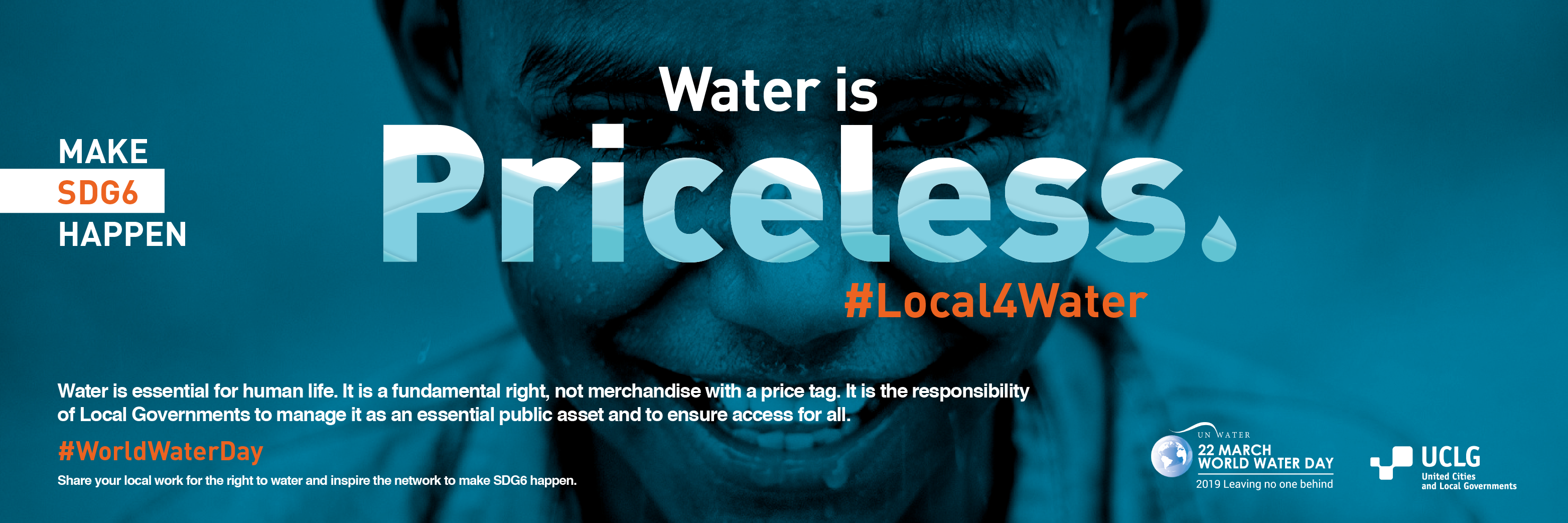
On the occasion of the World Water Day, UCLG reaffirm that access to water is a fundamental right everywhere, and it needs to be claimed as such even in the richest countries and in cities with sufficient resources, where too many people still suffer from very limited access to water and remain left out due to poverty and exclusion. Ensuring access to water for all is a moral responsibility to our citizens and one of the key dimensions of social inclusion policies.
The efforts made by the international community to move towards sustainable development and access to basic universal services through the Sustainable Development Goals (SDG), the Paris Climate Agreement, the Sendai Framework and the New Urban Agenda are commendable. They give us hope and allow us to hold on to the ideal of a better future for all our citizens. Even if access to basic services is progressing in several regions of the world we are seeing how, in many others, an increase in poverty translates into more and more citizens excluded from access to water and sanitation, which has been recognized as a human right by the United Nations’ General Assembly since July 2010.
Water is essential to human life. It is a fundamental right, not a commodity. It is the responsibility of local governments to manage it as an essential public good and to ensure access for all. »
Local and regional governments play a key role in ensuring access to water in a world where almost half the population lives in urban areas. Water and sanitation services are struggling to keep pace with increasing urbanization and it is often necessary to work to maintain public infrastructure and thus avoid massive losses. Most local and regional authorities are responsible for water distribution and sanitation for the population they serve, and also manage many water-related issues in a broader sense, such as local economic development, access to energy and food, poverty reduction, environmental management, resistance to climate change and natural disasters, public health problems, etc.
Ensuring access to water for all is a moral responsibility to our citizens and one of the key dimensions of social inclusion policies.
Water and sanitation are essential services for the dignity of citizens and for a decent quality of life. Local and regional governments often have no choice but to assume the health-related, economic, social and environmental consequences of the absence or deficit of these services, even when they are not acknowledged as competent to do so. In 2012, a study by the World Health Organization and UN-Water showed that, in 67 countries around the world, local governments had neither the financial nor the human resources to meet their responsibilities. Despite this, the commitment and political will of local elected officials to accomplish this mission is never lacking.
The right to water is essential for good governance, public health, sustainable development and peace in our territories.
The achievement of the various goals assigned to the international community to achieve ODS 6 requires the constant and continuous effort of all to ensure that access to water is definitively recognized as a human right.
If you also think that access to water is a fundamental right join the campaign and share our messages on social media using the hashtags #Local4Water and #WorldWaterDay!
Download all the materials here 











